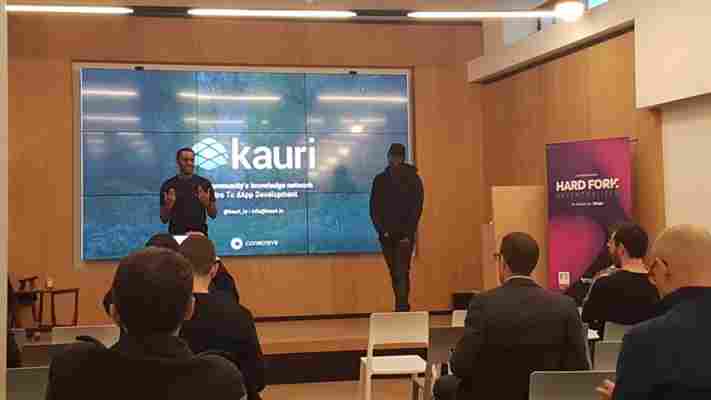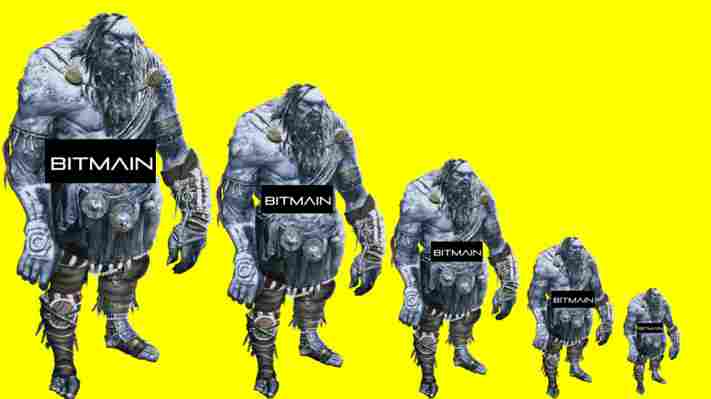An American man has fessed up in front of federal court judges, pleading guilty for operating an “unlicensed money transmitting business.”

A Department of Justics (DoJ) published a press release yesterday that details how Jacob Burrell Campos has been selling “hundres of thousands of dollars in Bitcoin to over 1,000 customers” across the United States.
Burrell Campos had been operating his business through Localbitcoinom between January 2015 and April 2016.
According to the statement, the American cryptopreneur had been using Localbitcoinom to attract customers. He then used a regulated US exchange, from which he was later banned, to trade cryptocurrency on behalf of his clients.
He also used a Hong Kong based exchange, which he used to purchase over $3.2 million worth of Bitcoin between March 2015 and April 2017.
Burrell Campos applied a 5 percent premium as a mark up to all his trades to make a profit.
As a result, his activities were breaching US Department of Treasury regulations which state that money transfer businesses must be registered with the US Financial Crimes Enforcement Network (FinCEN).
Burrell Campos admitted to the courts that he had no anti-money laundering (AML) or know-your-customer (KYC) policies in place.
He has agreed to forfeit his assets to the sum of $823,357, and faces a maximum of five years in prison.
ConsenSys teaches devs how to make their first dApp on the blockchain
This morning, developers from blockchain technology services firm ConsenSys and Kauri took to the Hard Fork Decentralized stage to show attendees how to create their first Ethereum-based dApp.

Taking the role of educators was lead developer at Kauri, Joshua Cassidy and lead technical evangelist at ConsenSys Catalyst, Abel Tedros.
Kauri is one of ConsenSys’ supported blockchain startups. Through creating a “global knowledge ecosystem,” Kauri is trying to help fledgling Ethereum developers find their feet when coding smart contracts for the Ethereum blockchain.
Essentially, Kauri uses the blockchain to help connect coders to blockchain dev resources that are useful when developing a smart contract.
Joshua Cassidy took participants through the Kauri Remix IDE system, a web-based integrated development environment for dApps and smart contracts. Remix IDE comes with all the relevant coding libraries to support coding smart contracts in Solidity, one of the preferred programming languages for blockchain-based applications. It also allows the smart contract to be compiled and tested as you work.
I’m not going to lie, I am not a coder. Still, I followed along with the demonstration and got reasonably far before the nuances of programming got the better of me.
Hard Fork spoke to one of the participants, Omamerhi Etefia , to see how they got on. Omamerhi admitted that her previous coding experience was limited, but this didn’t seem to prevent her from getting to grips with how to build an Ethereum smart contract.
Omamerhi is currently in the process of completing her degree at King’s University, and in her spare time is learning how to code and researching ways in which to bring the ‘decentralization’ of blockchain to the student and graduate recruitment sphere.
Using Remix IDE did make the process of building a smart contract more approachable, Omamerhi told Hard Fork, but she feels she still has a long way to go before she’ll be able to write fully deployable smart contracts for her platform.
There’s clearly a learning curve here. Of course it’s unrealistic for a non-programmer like myself to expect to pick this up in a morning, but there’s perhaps a greater issue we should be aware of.
Omamerhi went on to tell Hard Fork that if blockchain is to truly live up to its claim of decentralization and giving power to the people, that “we the people, have to learn to code.” Omamerhi continued, “I could give my idea to someone else, but I won’t have control of the vision, so I have to learn.”
Even if Kauri is trying to fill a skills gap, some people, like myself are still in the dark. One of blockchain‘s promises is that it can give power back to individuals, but it seems in the case of smart contracts, it gives a sizeable portion of that power to coders and programmers first.
If blockchain is ever going to liberate society, something needs to change or we’re all going to have to learn to code.
Report: Bitmain is losing its monopoly over cryptocurrency mining
Bitmain, the China-based cryptocurrency mining behemoth, has acquired the status of a legend in the industry, with a ton of mystery surrounding its operations. The company is undoubtedly one of the most profitable cryptocurrency businesses in the world. But it seems, Bitmain is now slowly falling out of favor.

A report from investment research firm Sanford C. Bernstein & Co. suggests that Bitmain is losing its technological advantage over its competitors in producing the cryptocurrency mining chips. As per the analysts, while Bitmain still controls as much as 85 percent of the cryptocurrency mining equipment market, other companies such as Canaan Inc. and Ebang International Holdings Inc. are catching up.
“The Beijing-based company, co-founded by 32-year-old billionaire Jihan Wu, may need to write down the value of its inventory as makers of rival mining gear catch up,” the analysts said in the report. “ Taiwan Semiconductor Manufacturing Co., which produces chips designed by Bitmain, should ask the company to make full prepayments and refrain from adding capacity solely for [cryptocurrency] related demand.”
It is worth noting that Bitmain makes majority of its profits from selling the mining equipment. The other minor sources of its revenue include mining cryptocurrency itself, the management fees it charges from its mining pools, and renting out mining power through cloud services.
However, if the Bernstein report’s claims are true, it would explain why Bitmain has been taking some drastic steps lately. Bitmain first struck controversy in March this year , when it sold its $12,000 mining equipment for Monero (XRM) and other privacy-oriented coins — knowing fully-well that the equipment will become obsolete by the time it actually ships.
Over the past year, Bitmain’s focus seems to have shifted from primarily focussing on selling the mining equipment to a more diversified portfolio. It has taken a particular interest in mining cryptocurrencies itself as well. The company announced a $500 million cryptocurrency mining farm in Texas earlier this month.
Bitmain has also invested heavily in blockchain-platform EOS , cryptocurrency payments company Circle , web-browser Opera , and even incubated a decentralized exchange DEop. In fact, according to the company’s CEO Jihan Wu, up to 40 percent of Bitmain’s profit over the next five years could be coming from selling AI chips instead of cryptocurrency mining equipment.
Considering that Bitmain was sternly focused on making mining equipment until very recently, it is certainly surprising that it is aiming for such diversity in a short span of time. Bitmain’s initial public offering (IPO) has also raised some concerns about its financial standing.
The much-anticipated IPO is expected to reach around $18 billion and investors seem to be taking notice. Reports surfaced earlier this month that Softbank Group and Tencent have participated in Bitmain’s pre-IPO. However, both companies have now denied any involvement with the IPO, raising doubt over the expected number of $18 billion for Bitmain’s IPO.
Bitmain’s financial liquidity was further challenged when its pre-IPO investment documents showed that the company holds a significant portion of its money in Bitcoin Cash (BCH), Bitcoin (BTC)’s controversial hard fork.
Blockstream’s Chief Strategy Officer (CSO) Samson Mow points out that Bitmain bought the BCH at the price of of $900/BCH. If it now attempts to sell the BCH that it holds, that would significantly bring down the price of the cryptocurrency. Therefore, Bitmain’s investment isn’t exactly liquid.
Bitmain’s announcement of the IPO did come as a surprise, and has been surrounded in controversies. It seems likely that, as the Bernstein report shows, Bitmain is losing its monstrous control over the cryptocurrency mining business, forcing it to venture to other businesses.











